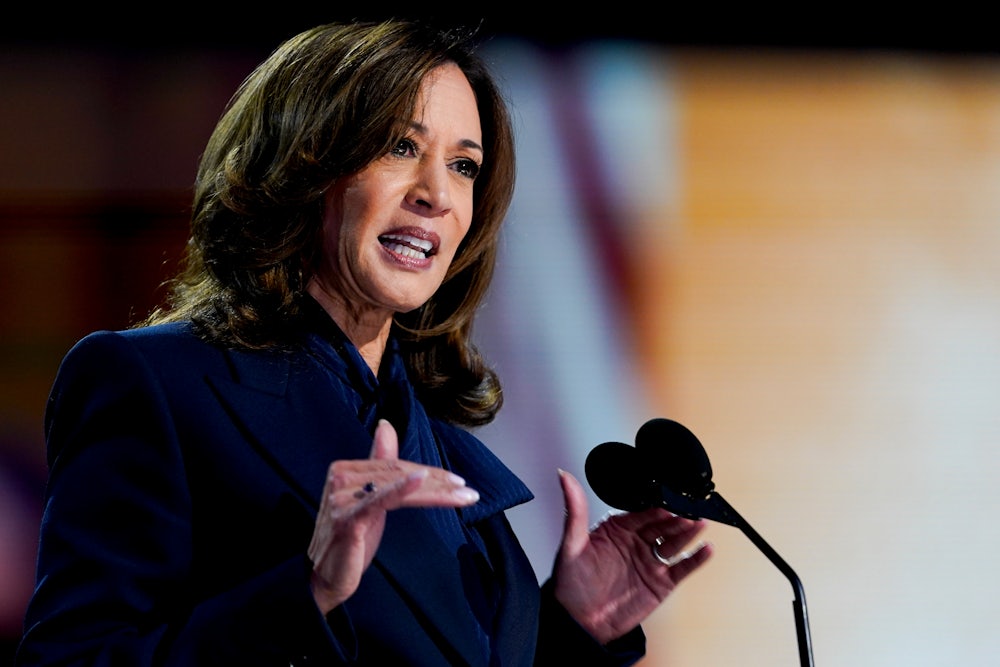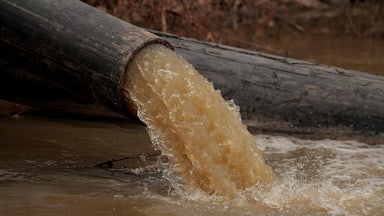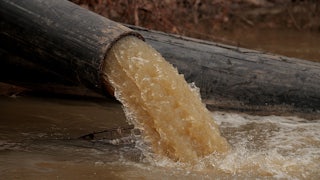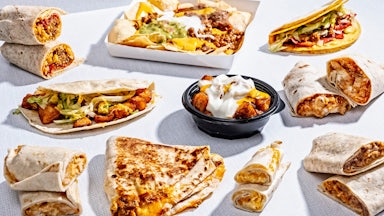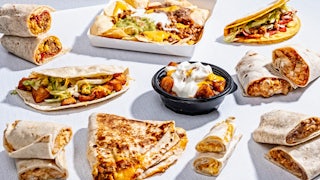Robert F. Kennedy Jr. last week ended his strange campaign—which
included horrific
revelations about his personal life, along with the more morally neutral
but unusual disclosure that a
worm has eaten part of his brain—in the most disgraceful way possible: by
endorsing Trump. Much of RFK Jr.’s campaign and platform was objectionable. But he also had a few appealing causes, including his passion
for fighting toxic pollution, especially microplastics,
and ensuring food and water safety. In endorsing Trump, he’s managed to turn
his back even on those: The former president’s track
record on these issues is terrible.
Democrats, on the other hand, are reasonably well equipped to address environmental safety and public health. They now have a good opportunity to court the voters who backed RFK Jr. for his environmental causes. And in a race predicted to come down to razor-thin margins, it’s a mistake to overlook any politically engaged group.
The Harris campaign took a first step in welcoming RFK voters to her campaign, if a bit obliquely, on Friday with the bland statement in response to RFK’s news that “even though we may not agree on every issue, Kamala Harris knows there is more that unites us than divides us.” But she should go further, laying out some specific plans on food safety and environmental pollution and speaking more directly to young male independent voters.
Sure, there is a crackpot left-right overlap in RFK’s loopiest and most divisive ideas—his resistance to vaccines, for example, or blaming the existence of trans and nonbinary people on microplastics—as well as his better ones (skepticism of the U.S.’s role in Ukraine). He appeals to a group of voters that experts call “diagonalist”—meaning that they have some left-wing and some right-wing views. Young men, especially, identify both with his personal emphasis on physical fitness and concern with environmental and public health threats to our bodily well-being.
I’ve written here before about why RFK is partly right about microplastics. Sure, his rhetoric can seem fanatically masculinist and transphobic in its framing, concerned as he is with the impact of environmental toxins on male hormones, feeding the unscientific (and dangerously bigoted) fear that they’re causing transgenderism. But—and I can’t believe I have to write this—it’s legitimate not to want microplastics in your balls, and research does suggest that pesticides, PFAS, and microplastics are bad for people’s endocrine systems. RFK Jr.’s concerns with the toxins in our bodies and environment are crucial and have broad popular resonance. Harris should immediately take them on board.
The White House seems to be paying some attention to the groundswell of concern about plastics that the RFK campaign represents (even if in loopy and problematic form). Biden last month announced a plan to reduce single-use plastics in federal operations, investments in plastics cleanup, tighter rules on toxic emissions from plastics, and improved infrastructure for recycling. This was announced in a press release but didn’t get much attention (especially compared to any of RFK Jr.’s antics). The Harris campaign should definitely be talking it up more.
Harris herself has some history on plastics pollution to point to, too. But RFK’s exit from the campaign offers an opportunity to go bigger, laying out a vision for a massive war on plastics, which would be hugely popular and could unite voters across ideologies and otherwise rigid culture war foxholes. A huge majority of Americans support action on this: Earlier this year the World Wildlife Fund found that 85 percent of Americans thought plastics pollution was a serious problem, while equally large majorities supported legislation to hold companies accountable for the plastic waste they create, incentivize them to reduce plastic waste, or punish the creation of plastic pollution.
Besides plastics, another huge source of RFK Jr.’s appeal was his emphasis on food. He has called attention to the unhealthiness of our processed foods, and wants to get herbicides and pesticides out of our soil, fruits, and vegetables—and our bodies. He talks about these issues all the time, and while they are sometimes treated as fringe by the mainstream media, here again his concerns are widely shared. While some of his preoccupations (predictably) are a bit strange—the panic over seed oils is overblown—he’s right to worry: Ultra-processed foods are linked to obesity, type 2 diabetes, and heart disease, the EPA still hasn’t banned an herbicide credibly accused of causing Parkinson’s, and many food additives common in the U.S. are linked to cancer. The illnesses associated with ultra-processed foods kill 1,600 Americans per day. The European Union bans many of these, as well as some drugs commonly used in farm animals in the United States (which we are, therefore, also regularly eating). In Mexico and other countries, government guidelines warn consumers against ultra-processed foods.
The Biden administration has worked to improve access to healthy food, especially for poor children, as well as working to protect the food supply from threats like avian flu. But they’ve done less to address the everyday unhealthiness of our food. Experts have pointed out that the U.S. lags behind other countries in taking action against the many toxins in that food supply. Harris should lay out a plan to act.
The liberal media would prefer to make fun of RFK Jr. rather than take any of his issues seriously. And I get it! He has said that “no vaccine is safe and effective,” which is untrue, and that Covid-19 could have been “ethnically targeted” to spare Ashkenazi Jews (what). He seems to be terrible to women, though no worse than the more politically conventional men in his celebrated family. And he left a bear cub carcass in Central Park, which is a bizarre thing to do (though to be fair, eating roadkill is an ethically and ecologically exemplary way to get your carnivore on).
But RFK Jr. is right about the toxic chemicals coursing through our bodies, environment, and food supply. And Democrats will only benefit by offering a strong platform on these issues. Trump may of course be happy to inflame the gender paranoia of the toxins discourse, which aligns with his reactionary politics, but he has no intention of addressing environmental pollution or food safety. But Harris, by paying attention to these concerns, could bring some much-needed substance to her campaign, win much-needed voters, and save lives.
